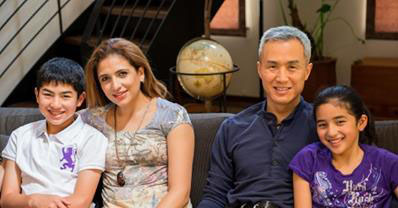日系ハーフを取り上げるドキュメンタリー映画『Hafu』のインタビュー記事で目にした「more often than not」の意味とは?
5月に、私のいるところで日系ハーフを取り上げたドキュメンタリー映画の上映会が開催されることになりました。その名も、『Hafu』。日本人の発音に合わせて、”half” ではなく “hafu” となっているところがポイントです。
興味を持ったので、さっそくどんな映画か調べてみました。すると、監督のインタビュー記事を発見。
読んでみると、
More often than not, the word carries certain connotations, and many Japanese have preconceived, often erroneous, notions that hafus have natural English ability, have spent time abroad, and possess many of the physical characteristics Japanese associate with Westerners.
というくだりが引っかかりました。
ポイント
“more often than not” は「たいてい」という意味です。
more often than not or as often as not: on most occasions, or in most situations
(「ほとんどの場合」あるいは「ほとんどの状況で」という意味なんですね!)
つまり、「ほとんどの場合、言葉というものはある言外の意味を含むが、多くの日本人はハーフといえば当たり前に英語ができて、外国で暮らしたことがあって、日本人が西洋人に対して連想するような身体的特徴がたくさんあるという認識をしばしば誤って持ってきた」と書かれていたのでした。
補足
正直に言うと、私もアメリカに来るまで上の文章と似たようなイメージを少なからず日系ハーフの人に抱いていたことは否めません。日本にいた頃は身近にハーフの知人があまりいなくて、テレビや雑誌で見るハーフのタレントが「ハーフ」の代表格として印象づいていました。
でも、実際は必ずしもそうではありません。映画『Hafu』の共同監督の一人、西倉めぐみさんは以下のように語っています。
As a result of viewing models and performers exclusively on television, the general public has been fed this idealized image of hafus. According to this ideal, the hafu are “model beautiful,” are mixed with caucasian, and are bilingual. The adoration of hafus has extended as far as magazines offering techniques on how to apply make up so one looks more hafu. Even more extreme, I recently came across a plastic surgeon who offered services to make women look more Western or hafu. I have even come across people who are urayamashii [envious] of hafus, saying that all hafus are beautiful, that they are lucky to be bilingual, that they wish they were hafu themselves or that they want to have hafu children one day so that their children can become models. While these comments can be viewed positively they are also stereotypes and they over simplify the hafu experience; there are many of us who don’t fit that idealized image.
(もっぱらテレビでモデルやパフォーマーを見る結果、一般大衆はハーフの理想像を植え付けられてきました。この理想像によって、ハーフといえば「モデルのように美しい人」で、白人と混ざり合っていて、バイリンガルということになっています。ハーフに対する憧れは、ハーフのように見えるメイクのテクニックを雑誌が紹介するまでに拡大。さらに極端な例だと、西洋人やハーフに見えるような整形術があることも最近知りました。ハーフを羨ましがり、ハーフはみんな綺麗と言ったり、バイリンガルでラッキーだと言ったり、自分もハーフが良かったと言ったり、いつかハーフの子どもが欲しい、そうすれば子どもがモデルになれるかもしれない、と言ったりする人にも出会いました。これらの意見は前向きにも捉えられるかもしれませんが、固定観念に縛られていて、「ハーフ」の経験を画一化し過ぎています。そんな理想化されたイメージにあてはまらない人もたくさんいるのです。)
映画には5人の日系ハーフが登場するそうで、日本でずっと育ってきた人もいれば、外国で育ってきて今回日本を初めて訪れる人もいます。
共同監督の西倉めぐみさんと高木ララさんも、共にハーフ。西倉さんは15歳の時にアメリカに移住して26歳で日本に戻り、高木さんは日本人の母親とスペイン人の父親のもとに産まれ、日本、アメリカ、カナダ、スペイン、オーストラリアで育ちました。
We hope that this film will be seen by as many people as possible, both in and outside of Japan. Our goal is to create awareness of the diversity that exists in Japan, and also start a dialogue about what it means to be Japanese today. For those outside of Japan, we hope they will be able to reflect upon what the mixed-race experience is like in their own country. As the world is diversifying faster than even before, we need to start asking ourselves what changes are needed so that multiracial or multicultural children can grow up with confidence rather than with the fear of being different. We will be happy if our film can even make a small contribution towards that.
(私たちはこの映画を、日本国内外のできるだけ多くの人に観てもらいたいと思っています。私たちの目的は、日本にある多様性への気づきを生み出し、それが今日の日本で意味することについての会話を生むことです。海外の人に向けては、自分の国の混合人種の人たちの経験に思いを寄せてもらえたらと思っています。世界がますます早く多様化していくにつれて、私たちも多様な人種の血や文化を受け継ぐ子どもたちが怖れではなく自信をもって育つよう、どんな変化が必要か考え始める必要があるのです。)
下の映像によると、海外在住の日本人は2010年の時点で100万人以上いるそう。トップはアメリカで約39万人、次いで中国約13万人、そしてその次がオーストラリアで約7万人とのこと。在日外国人の数も増えていて、2010年の時点で200万人以上に達しています。こちらは国籍のトップが中国で69万人、次いで韓国57万人、そしてその次がブラジルで23万人となっています。
また、国際結婚をするカップルも増加し、2010年の時点で3万人を突破。国際結婚の上位5都市は大阪(7.3%)、東京(7.2%)、名古屋(6.8%)となっています。その結果、全国で生まれる子どもの49人に1人はハーフなんだそう。
調べたらますます興味が湧いてきたので、当日はぜひ上映会に出席したいと思います。

